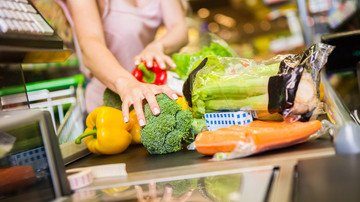In the event of a massive power outage, Austria will hand out emergency food rations to the public. The plan comes as food prices soar and the energy crisis spreads worldwide.
The plan, which was published on the country’s Ministry of Agriculture, Regions, and Tourism website, decrees that all grocery stores are to remain closed on the first day of a potential blackout. On the second day of the same blackout, stores are to remain closed but act as centers from which bags of fresh produce will be given to residents, between 10:00 am and 3:00 pm.
From day three, only products from the dry range will be offered, for safety reasons, according to a report by RT. Additionally, the stores will offer prepared bags with water, long-life bread, canned goods, convenience products, and candles to be sold for cash. Baby items and hygiene products will be made available on request only.
Even though all major Austrian retailers have agreed to the food rationing plan, including Spar, Maximarkt, Billa, Penny, Lidl, Frisch, Unimarkt, M-Preis, and others, residents were advised to stock up on food with a long shelf-life and keep a 14-day supply at home. They were also told to keep small denominations of cash in the amount of around €100 per family member.
Unsurprisingly, this scheme was developed by ruling class agencies and the Austrian central bank. It was prepared in coordination with the Austrian Chamber of Commerce (WKÖ), the National Bank of Austria (OeNB), and the energy ministry, as well as representatives from the food retail industry and the association of Austrian municipalities (Österreichische Gemeindebund).
The rulers of Austria did want to say that the food supply is secure and that the chances of a blackout are “very low and unlikely.” They noted that “new potential challenges require timely preparation in order to be ready for a crisis.”
“Our food trade industry is a responsible one and has already proved its ability to overcome the crisis. The solution presented today in the event of a possible mass blackout is a model for the whole of Europe and shows that our food industry is ready for the crisis as part of the system of critical infrastructure,” the head of the association of food retailers Christophe Tamandl said, commenting on the plan.
But what happens if there is no food to handout?










0 Comments